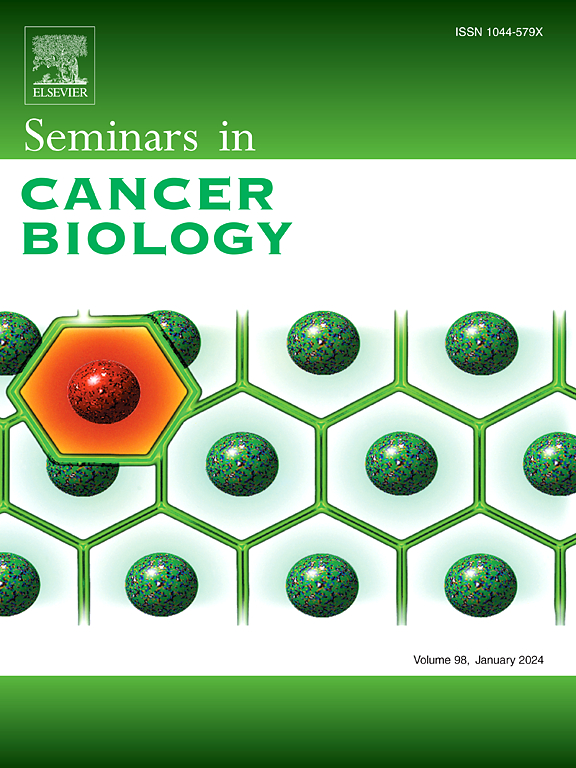免疫检查点抑制剂相关心肌炎的分子机制和治疗:最新进展
IF 15.7
1区 医学
Q1 ONCOLOGY
引用次数: 0
摘要
免疫检查点抑制剂(ICIs)通过提高免疫细胞特异性识别和杀伤肿瘤细胞的能力来增强全身抗肿瘤免疫应答。活化的T淋巴细胞可靶向肿瘤外的组织和器官,导致不同程度的免疫相关不良事件(irAEs)。免疫检查点抑制剂相关性心肌炎(ICIAM)是一种罕见的心肌炎,发病率约为0.04% ~ 1.7%。然而,它是最致命的irAE,经常成为患者短期死亡的关键原因。目前,ICIAM的分子机制包括t细胞和巨噬细胞浸润介导的免疫损伤、共同抗原理论、炎症因子和信号通路驱动的促炎反应。然而,具体机制尚不清楚。全面了解ICIAM的病理生理机制有助于确定irAEs的生物标志物和治疗靶点,最终提高癌症患者的生存状态。本文章由计算机程序翻译,如有差异,请以英文原文为准。
Molecular mechanisms and therapies of immune checkpoint inhibitor associated myocarditis: Update on recent developments
Immune checkpoint inhibitors (ICIs) enhance systemic antitumor immune responses by improving the ability of immune cells to recognize and kill tumor cells specifically. Activated T lymphocytes may target tissues and organs outside the tumor, leading to different degrees of immune-related adverse events (irAEs). Immune checkpoint inhibitor-associated myocarditis (ICIAM) is a rare irAE, with an incidence of approximately 0.04–1.7 %. However, it is the most fatal irAE and often becomes a critical cause of short-term mortality in patients. Currently, the molecular mechanisms of ICIAM involve immune damage mediated by T-cell and macrophage infiltration, the common antigen theory, and pro-inflammatory responses driven by inflammatory factors and signaling pathways. However, the specific mechanisms remain unclear. A comprehensive understanding of the pathophysiological mechanisms of ICIAM can aid in identifying biomarkers and treatment targets for irAEs, ultimately improving the survival status of patients with cancer.
求助全文
通过发布文献求助,成功后即可免费获取论文全文。
去求助
来源期刊

Seminars in cancer biology
医学-肿瘤学
CiteScore
26.80
自引率
4.10%
发文量
347
审稿时长
15.1 weeks
期刊介绍:
Seminars in Cancer Biology (YSCBI) is a specialized review journal that focuses on the field of molecular oncology. Its primary objective is to keep scientists up-to-date with the latest developments in this field.
The journal adopts a thematic approach, dedicating each issue to an important topic of interest to cancer biologists. These topics cover a range of research areas, including the underlying genetic and molecular causes of cellular transformation and cancer, as well as the molecular basis of potential therapies.
To ensure the highest quality and expertise, every issue is supervised by a guest editor or editors who are internationally recognized experts in the respective field. Each issue features approximately eight to twelve authoritative invited reviews that cover various aspects of the chosen subject area.
The ultimate goal of each issue of YSCBI is to offer a cohesive, easily comprehensible, and engaging overview of the selected topic. The journal strives to provide scientists with a coordinated and lively examination of the latest developments in the field of molecular oncology.
 求助内容:
求助内容: 应助结果提醒方式:
应助结果提醒方式:


